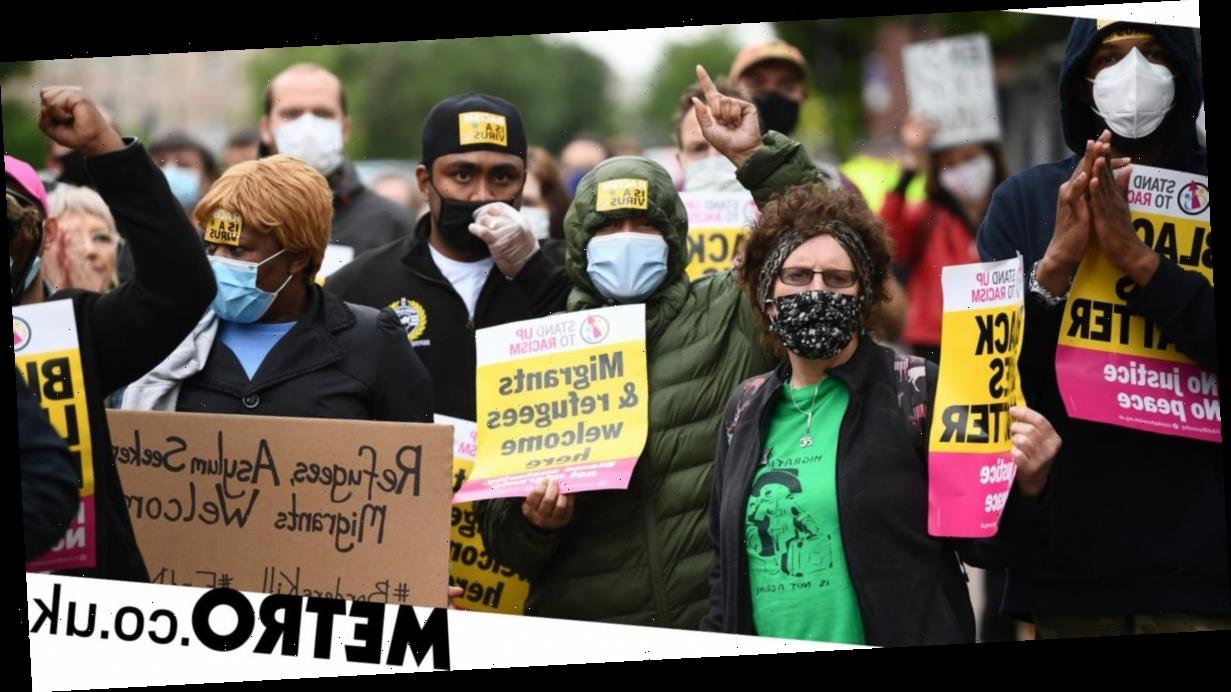The pandemic has made us all acutely more aware of our physical health but perhaps our mental health, vulnerability and wellbeing even more so.
For months, we have faced instability, loss of freedom of movement, and been cut off from our loved ones. We have, in effect, had a small glimpse of what refugees go through for possibly years on end before finding asylum – that’s if they’re amongst the lucky ones – and the severe toll it can take.
Since 2014, I’ve been working with refugees both in the UK and abroad, visiting camps and the internally displaced in Palestine, Turkey and Syria.
I have met individuals who have spent months or even years in squalid temporary accommodation, each with a lifetime of horror stories that they have lived through and survived.
Mariam, for example, is a refugee from Syria who spent months with her children in a portable building in a camp in Turkey. She hoped to reunite with her husband, only to uncover his brutal murder in a viral social media video. Mariam will likely live with PTSD for the rest of her life.
Visit our live blog for the latest updates: Coronavirus news live
I also met Muhammad, who is a young man in a refugee camp in the West Bank. He was born there, and like many of his friends, suffers from severe developmental issues because of exposure to the ugly realities of conflict.
Sadly, the suffering doesn’t stop there. Often, instead of finally finding respite, building a new life in Britain is just the latest chapter in a lifetime of trauma as refugees are faced with a huge amount of prejudice: alienation, discrimination, unsafe housing and even being the target of far-right extremists.
When you hear firsthand the stories of humiliation, abuse and even violence experienced by some asylum seekers in the UK, you begin to understand those who have second thoughts about ever arriving here – even if they hail from warzones.
I once met a young Afghani named Ahmed, who after being mugged at knife point in a racist attack, felt that he was not only unwelcome but unsafe in the UK. Then there was the 2018 video that went viral of teenagers bullying their purportedly Syrian refugee classmate, grabbing him by the neck before pinning him down and ‘waterboarding’ him.
As signatories to the UN 1951 Refugee Convention, we made a commitment to protect and serve those vulnerable people fleeing persecution. That now must include appropriately providing mental health services in a way that is accessible.
Currently, proper provision is severely lacking, despite the scale of the problem. Asylum seekers are five times more likely to have mental health issues than the general population, and more than 60% will go through severe mental distress.
Mental health is unlikely to be a priority for refugees who are focused on securing housing for their family or food on the table for their children
In my experience, refugees can be more comfortable engaging with mental healthcare through a community centre or a Mosque than through a GP or hospital. They’re more trusting of an understanding and familiar face, someone who may speak their language or share their cultural or religious beliefs. This is why non-traditional interventions are so crucial.
Community events can facilitate access to mental health services for those who would otherwise never receive it.
Last year, I was involved with The Big Hug, a country-wide initiative in which mental health specialists (among other professionals in areas like legal advice and housing support) proactively went to vulnerable communities, rather than waiting for them to come to their offices. This allowed refugees and asylum seekers to see what help was available for them and their families in a familiar environment.
Events like this need to be supported by a range of measures to widen access to healthcare, including translation services and religious and cultural literacy training for professionals.
At the UK-based Penny Appeal – a charity that provides poverty relief across Asia, the Middle East and Africa – my colleagues and I have tailored culturally appropriate music therapy for refugees in the UK. We use music they know and recognisable lyrics to help children positively manage feelings they don’t yet have the vocabulary to express.
While NHS care is available to refugees and asylum seekers during their application process, they can sometimes be refused treatment due to lack of documentation and confusion around their status, and are unsurprisingly therefore less likely to receive mental health support than the general population.
Some refugees may have an understandable fear of people in authority and worry that doctors will disclose confidential information that could then be used against them by immigration authorities.
Mental health is also unlikely to be a priority for refugees who are focused on securing housing for their family or food on the table for their children.
At a time when many of us are thinking about the fragility of our mindsets, we must improve provision and access for those on the fringes of our society, too.
Prevention is better than cure and it is safer, more effective, and more efficient to address potential crises early on – even pre-empting them before they arise – than to deal with them when they spiral out of control.
Mental health provision is already chronically underfunded across the UK and it’s likely to be worse for wear in the coming months and years. The most vulnerable will experience this as ‘crisis upon crisis’ – and we must include them in our national self-care.
If we don’t, we will end up with a society where the worst off in terms of mental resilience fall even further behind the rest of us. This would be a tragedy for us all.
Source: Read Full Article
